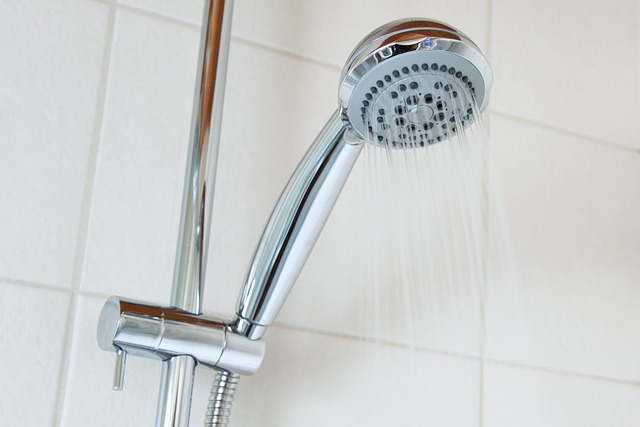Hot water is an essential part of our daily lives, whether it’s for showering, cooking, or cleaning. However, heating water can account for a significant portion of your energy bills. Inefficient water heaters not only waste energy but also money. To combat this issue, high-efficiency water heaters have become increasingly popular. In this comprehensive guide, we will explore various aspects of hot water efficiency, including high-efficiency water heaters, energy-efficient options, costs, and much more. By the end of this article, you’ll be well-equipped to make an informed decision about the best water heater for your needs.
Understanding Hot Water Efficiency
Before delving into the specifics of high-efficiency water heaters and energy-efficient options, let’s first understand the concept of hot water efficiency.
What Is Hot Water Efficiency?
Hot water efficiency refers to the ability of a water heating system to produce the desired amount of hot water while minimizing energy consumption and heat loss. In simpler terms, it’s about getting the most hot water for your energy dollar. An efficient water heater ensures that less energy is wasted in the process of heating water, ultimately reducing your utility bills and environmental impact.
Types of High-Efficiency Water Heaters
When it comes to high-efficiency water heaters, you have several options to choose from. Each type has its advantages and disadvantages, so it’s essential to consider your specific needs and circumstances before making a decision.
1. Energy Star Water Heater
Energy Star water heaters are certified to meet strict energy efficiency guidelines set by the U.S. Environmental Protection Agency (EPA). These water heaters are available in various types, including tankless, heat pump, and conventional tank-style heaters. The Energy Star label indicates that the appliance meets or exceeds energy efficiency standards, helping you save money on energy bills.
2. High-Efficiency Gas Water Heater
High-efficiency gas water heaters, often available in 50-gallon models, are designed to provide ample hot water while using less natural gas. They feature advanced technologies like condensing heat exchangers, which capture and utilize heat that would otherwise be lost. This makes them a cost-effective choice for households with high hot water demand.
3. High-Efficiency Electric Water Heater
High-efficiency electric water heaters are designed to maximize energy efficiency while running on electricity. They typically feature advanced insulation and heating elements, reducing standby heat loss and energy consumption. These heaters are suitable for areas where natural gas is not readily available or for homeowners who prefer electric heating.
4. Electric Heat Pump Water Heaters
Electric heat pump water heaters are an innovative option that extracts heat from the surrounding air and uses it to heat water. They are highly energy-efficient and can reduce your water heating costs significantly. However, they work best in areas with a moderate climate since they rely on air temperature for heat extraction.
5. Condensing Water Heater
Condensing water heaters are known for their exceptional energy efficiency. They are often gas-powered and use a secondary heat exchanger to capture and utilize exhaust gases’ heat. This results in minimal heat wastage, making them a top choice for those looking to maximize efficiency.
6. Tankless Water Heater
Tankless water heaters, also known as on-demand water heaters, heat water as you need it, eliminating the need for a storage tank. They are highly energy-efficient because they only operate when hot water is required, reducing standby heat loss. Tankless water heaters are available in both gas and electric models.
7. Heat Pump Water Heater
Heat pump water heaters work similarly to electric heat pump systems but are specifically designed for heating water. They extract heat from the air or ground and use it to warm the water in the tank. They are energy-efficient but require adequate installation space and ventilation.
Factors to Consider When Choosing a High-Efficiency Water Heater
Selecting the right high-efficiency water heater for your home involves considering various factors. Here are some crucial aspects to keep in mind:
1. Fuel Type
Your choice of fuel type (gas, electric, or heat pump) depends on the availability of energy sources in your area and your preferences. Gas heaters are typically more energy-efficient but may not be an option if you don’t have access to natural gas.
2. Size and Capacity
The size and capacity of the water heater should match your household’s hot water demands. Smaller tanks are suitable for single individuals or small households, while larger tanks are necessary for families with higher hot water usage.
3. Energy Efficiency Ratings
Check the energy efficiency ratings of the water heater you’re considering. Look for Energy Star certification, which indicates that the unit meets or exceeds energy efficiency standards.
4. Installation Location
Consider where you plan to install the water heater. Some models, like heat pump water heaters, require ample space and proper ventilation. Ensure that your chosen location can accommodate the selected water heater type.
5. Climate
Your local climate can affect the performance of certain water heater types. For example, heat pump water heaters may be less efficient in very cold climates, while condensing gas water heaters excel in colder regions.
6. Cost and Payback Period
High-efficiency water heaters often have a higher upfront cost than traditional models. Calculate the payback period by comparing the potential energy savings with the additional purchase cost. In many cases, the long-term savings outweigh the initial investment.
7. Maintenance Requirements
Consider the maintenance requirements of the water heater you choose. Some models may require more frequent servicing than others. Factor in maintenance costs when making your decision.
Energy-Efficient Water Heater Options
In addition to high-efficiency water heaters, there are several energy-efficient options available to further enhance your hot water system’s efficiency.
1. Solar Water Heaters
Solar water heaters use energy from the sun to heat water, making them one of the most environmentally friendly options. They consist of solar panels (collectors) and a storage tank. Solar water heaters are highly efficient, especially in sunny regions, and can significantly reduce your reliance on traditional energy sources.
2. Demand-Activated Hot Water Recirculation Systems
Hot water recirculation systems reduce water waste and waiting time by circulating hot water through your plumbing system. They are activated when you turn on a faucet or shower, ensuring that hot water is readily available. This can lead to significant water and energy savings over time.
3. Smart Water Heaters
Smart water heaters are equipped with advanced controls and connectivity features. You can monitor and adjust your water heater’s settings remotely using a smartphone app. These heaters can optimize their operation based on your usage patterns, further improving energy efficiency.
Assessing Water Heater Costs
The cost of a water heater goes beyond its purchase price. When evaluating water heater costs, consider the following:
1. Purchase Price
The upfront cost of a water heater varies depending on the type, brand, and capacity. High-efficiency models typically have a higher purchase price than standard models.
2. Installation Costs
Factor in the cost of professional installation, especially if you’re upgrading to a different type of water heater. Installation costs may include labor, materials, and any necessary modifications to your plumbing or electrical systems.
3. Operating Costs
Consider the long-term operating costs of the water heater. High-efficiency models may have lower energy bills, which can lead to substantial savings over the unit’s lifespan.
4. Maintenance Costs
Different water heater types have varying maintenance requirements. Some may require more frequent servicing, so it’s essential to budget for maintenance costs over time.
5. Rebates and Incentives
Check if there are any rebates or incentives available for purchasing energy-efficient water heaters in your area. These programs can help offset the initial cost.
6. Lifecycle Costs
When evaluating water heater costs, it’s crucial to assess the total lifecycle costs, including purchase, installation, operating, and maintenance expenses. This comprehensive view will give you a clearer picture of the true cost of ownership.
Maximizing Efficiency with Additional Measures
While choosing a high-efficiency or energy-efficient water heater is a significant step toward maximizing hot water efficiency, there are additional measures you can take to further enhance your system’s performance:
1. Insulate Hot Water Pipes
Insulating hot water pipes can help minimize heat loss as hot water travels from the heater to your faucets and showers. This simple and cost-effective measure can improve efficiency and reduce the time it takes for hot water to reach your fixtures.
2. Set the Right Temperature
Adjust your water heater’s temperature to a safe and efficient level. The U.S. Department of Energy recommends a setting of 120 degrees Fahrenheit (49 degrees Celsius) to prevent scalding and reduce energy consumption.
3. Fix Leaks and Dripping Faucets
Address any leaks or dripping faucets promptly. Wasting hot water not only increases energy consumption but also leads to higher water bills.
4. Use Low-Flow Fixtures
Install low-flow showerheads and faucets to reduce water consumption. These fixtures maintain water pressure while using less hot water, saving energy and water.
5. Consider a Timer or Programmable Thermostat
If your water heater doesn’t have built-in scheduling features, consider installing a timer or programmable thermostat. These devices allow you to heat water only when needed, further reducing energy usage.
Monitoring and Maintenance
Once you’ve selected and installed your high-efficiency or energy-efficient water heater, it’s essential to monitor its performance and perform regular maintenance to ensure optimal efficiency and longevity.
1. Monitor Energy Usage
Keep track of your water heater’s energy consumption to identify any sudden spikes or abnormalities. This can help you detect potential issues early and take corrective action.
2. Schedule Routine Maintenance
Follow the manufacturer’s maintenance guidelines for your specific water heater type. This may include flushing the tank, inspecting for leaks, and checking the heating elements or burners.
3. Address Issues Promptly
If you notice any problems with your water heater, such as reduced hot water output or unusual noises, don’t delay in addressing them. Prompt repairs can prevent further damage and maintain efficiency.
Conclusion
Hot water efficiency is not only about saving money but also about reducing your environmental footprint. Choosing a high-efficiency or energy-efficient water heater tailored to your needs and circumstances can result in significant long-term savings and a more sustainable home. Additionally, implementing additional measures and conducting regular maintenance can further enhance your hot water system’s performance. By taking these steps, you’ll not only enjoy ample hot water but also contribute to a greener, more energy-efficient future.










